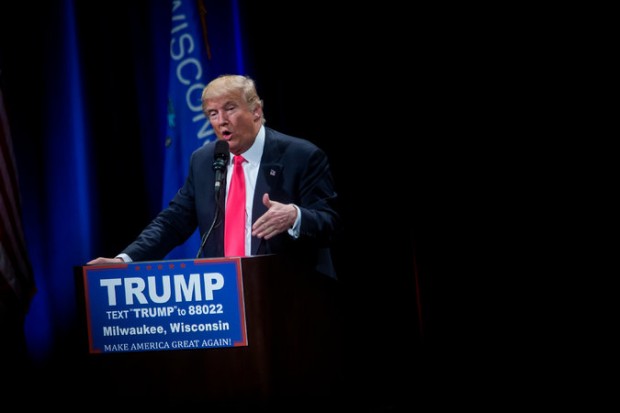Donald Trump loses Wisconsin, Bernie Sanders at the lead

Can a single state make any real difference in a chaotic and unpredictable presidential primary season? Tuesday night’s dual Wisconsin primariessuggest so. The Republican field was down to three candidates, and the Democrats’ down to two. All were focused on the same state on the same day. The result was a clarifying glimpse into where Trumpism falters, where Senator Bernie Sanders of Vermont can succeed, and whether each party’s establishment has the power to steer its own nomination.
These are some of our most important takeaways:
Gravity exists
It can sometimes seem as though Donald J. Trump defies the laws of political physics — that his provocations, prevarications and flip-flops simply slough off his branded baseball cap. But Wisconsin, a state with highly engaged voters and a powerful talk-radio establishment that turned sharply against the Republican, showed that some actions do generate reactions. After Mr. Trump’s clumsy expressions of solidarity with opponents of abortion — suggesting at one point that there should be “some form of punishment” for women who have abortions — he won just a third of self-identified evangelical Christians.
Bernie Sanders lives
Mr. Sanders made the most of his overwhelming win in Wisconsin, which was his seventh victory out of the past eight contests. The good news for Mr. Sanders is that those wins have eliminated a sizable chunk of Hillary Clinton’s lead in pledged delegates. The better news is that he has unusually strong financial support for an insurgent candidate who is not depending on the Democrats’ elite donor world. The bad news is that the states ahead look far more congenial to Mrs. Clinton.

New York cometh
Wisconsin — overwhelmingly white, with a Republican electorate that is more educated and religious than that of many states — was fertile ground for Mr. Sanders and Senator Ted Cruz, Republican of Texas. Delegate-rich New York, which votes on April 19, will be very different. For Mrs. Clinton, New York offers a diverse electorate, similar to those that have helped her build a strong lead in the early primary states. For Mr. Trump, the state provides what is likely to be a huge win in delegates and votes. Both will be on their home turf.
Kasich is declining
Wisconsin, a Great Lakes cousin of Ohio, Gov. John R. Kasich’s home state, should in theory have been somewhat friendly territory for him. Instead, Mr. Kasich, a Republican, plummeted below 15 percent, considerably worse than his performance in other states in the industrial Midwest. Mr. Kasich’s campaign is now being held together by cheer, cable television appearances and the faint hope that a contested convention will somehow go his way.
How to submit an Op-Ed: Libyan Express accepts opinion articles on a wide range of topics. Submissions may be sent to oped@libyanexpress.com. Please include ‘Op-Ed’ in the subject line.
- Libya’s HCS invites applicants for key state roles - December 31, 2023
- UK calls on Iran to prevent escalation in Israel-Hamas conflict - November 05, 2023
- Libyan Interior Minister: Immigrant shelter costs a fortune - November 05, 2023


